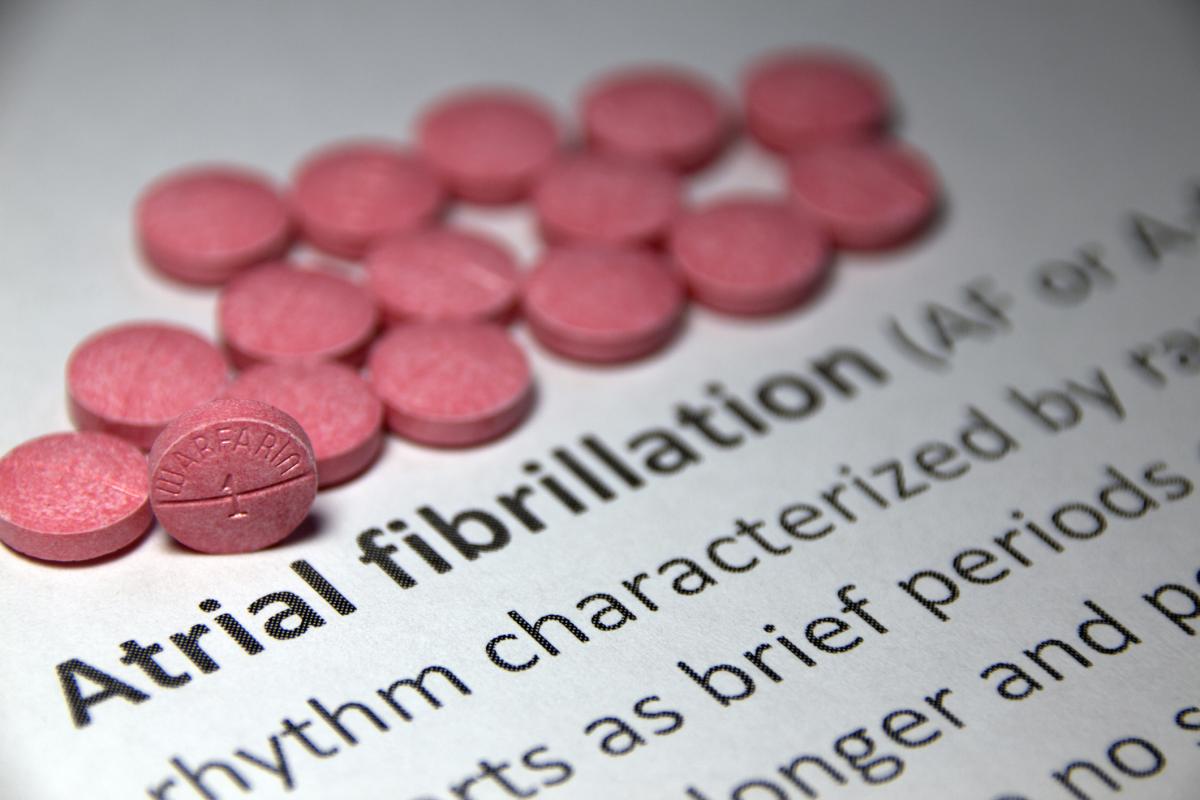Are you at risk for atrial fibrillation?

Are You at Risk for Atrial Fibrillation?
Atrial Fibrillation, also known as Afib or AF, is an irregular rhythm with often rapid heart rate that can increase your risk of stroke and heart failure. Affecting millions of people in the United States, intermittent or continuous Afib episodes may occur without a person being aware, and often goes undiagnosed as a result. It can be a serious condition and may lead to complications, but is also common and treatable.

What is Atrial Fibrillation?
To simplify, your heart has four chambers that pump and distribute blood to your entire body. During an Afib occurrence, the heart's two upper chambers (atria) beat irregularly and out of coordination with the two lower chambers (ventricles) of the heart. Afib episodes present a problem with the heart’s electrical signals, causing chaotic and irregular pumping. For more information, see an informative, interactive slideshow on what occurs during atrial fibrillation.
Atrial fibrillation may be occasional, persistent, long-standing over 12 months or even permanent. Episodes of atrial fibrillation can come and go, or you may develop symptoms that don’t go away and may require treatment. While Afib itself is not life-threatening, it can cause serious health problems.
Who is at Higher Risk?
Sometimes there are no identifiable risk factors found in certain Afib cases. However, there are some basic factors that can increase the risk of atrial fibrillation. While older adults, those with an abnormal heart valve (mitral regurgitation) or congenital heart disease are at higher risk, research suggests there are other common risk factors:
- Age, especially over 60 years
- Gender, occurring nearly 50 percent more often in men
- Family history
- Cardiomyopathy, an acquired or hereditary disease of the heart muscle
- High blood pressure, especially uncontrolled
- Coronary artery disease, with or without a heart attack
- Diabetes
- Some studies show sleep apnea as a trigger
- Prior heart surgery
- Obesity
- Alcohol and substance abuse. A study published in July 2014 in the Journal of the American College of Cardiology found that heavy drinkers have an almost 40 percent higher risk for atrial fibrillation than nondrinkers
- Other chronic conditions, such as thyroid problems (hyperthyroidism) or those with COPD
Atrial fibrillation triggers include alcohol and stimulants. It can also occur with eating or following ingestion of cold foods and drinks. Atrial fibrillation often occurs spontaneously, without an identifiable trigger.
What Are Common Symptoms of Atrial Fibrillation?
As mentioned before, there may or may not be obvious symptoms. When symptoms are present, they may be occasional or quite persistent.
Common symptoms may include:
- Rapid pulse, palpitations and irregular heart beat that may include sensations of a racing heartbeat or uncomfortable flip-flopping in your chest
- Shortness of breath
- Reduced ability to exercise or exert yourself
- Dizziness and/or lightheadedness
- Feeling very tired or weak
- Chest pain
What Are Some Basic Treatment Options?
Treatments for AFib may include medications and/or other interventions in an effort to try and alter the heart's electrical system. It all begins with a proper diagnosis through and in-depth exam from your doctor.
Treatment options may include:
- Drug therapy, medications to control heart rate
- Anti-arrhythmic drugs to maintain normal rhythm
- Ablation procedure to prevent recurrences of arrhythmia
- Anti-coagulants (blood thinners) should also be considered for stroke prevention, depending on risk factors
When Should I See a Doctor for Afib?
If you have symptoms, don’t ignore them. Make an appointment with your doctor, who may order an electrocardiogram to determine if your symptoms are related to AFib or other arrhythmia condition. Certain patients may need an electrophysiology study to accurately diagnose the problem. Your best protection is to know your risk factors and let your doctor know if you are experiencing symptoms.
What Happens if I Ignore it?
If you have been diagnosed with atrial fibrillation and have ignored it, you are putting yourself at risk. Increased or worsening arrhythmia, development of cardiomyopathy, symptomatic heart failure and risk of stroke are all potential, serious consequences of inaction. If diagnosed, treatment goals may include heart rhythm and rate control, blood clot prevention, managing stroke risk factors and preventing heart failure.
Our aim is to keep your heart healthy for years to come. Learn about heart rhythm, the Nebraska Medicine approach for atrial fibrillation and hear a personal story from a Nebraska Medicine AFib patient to discover more regarding how we can help.


